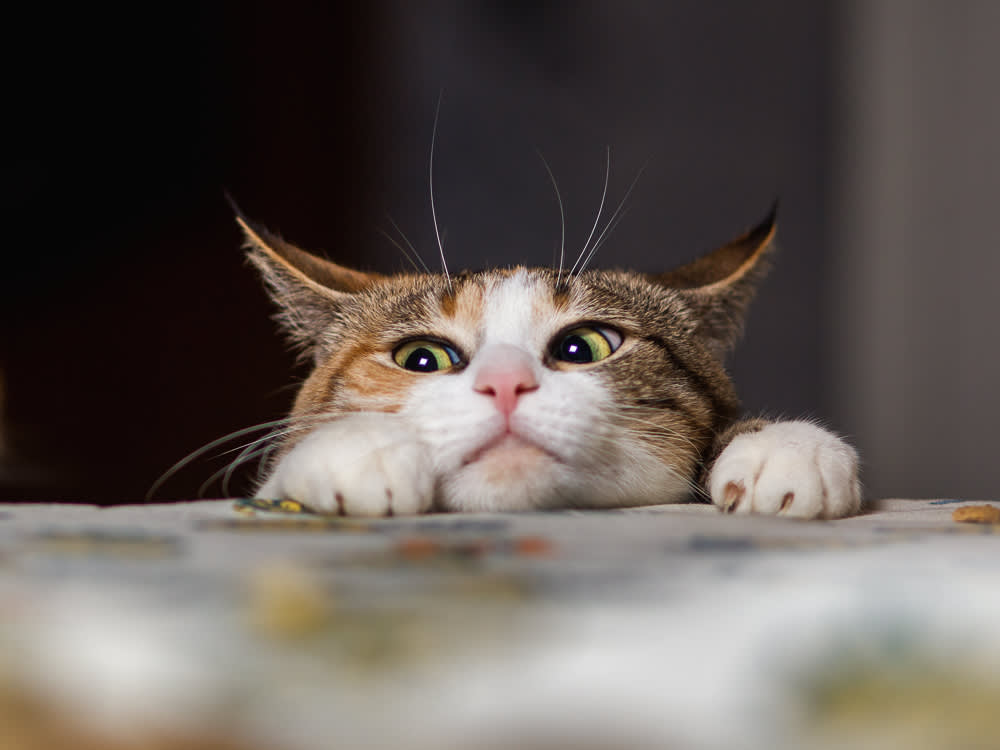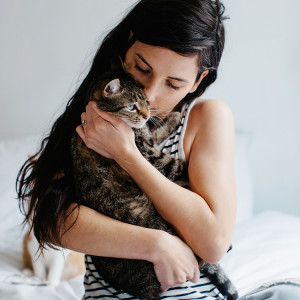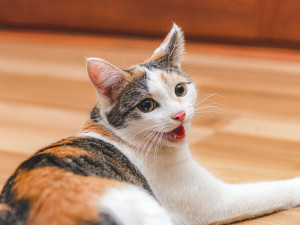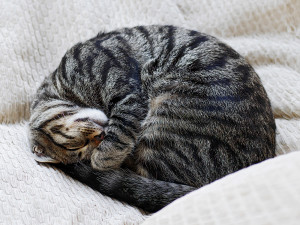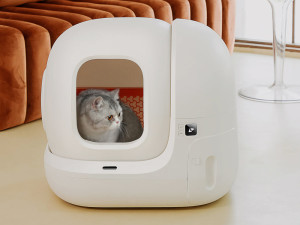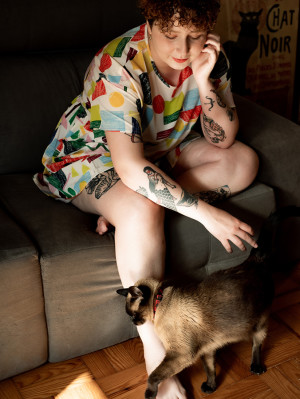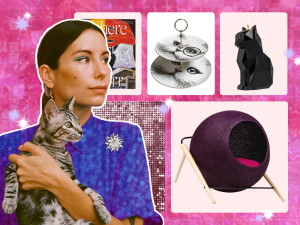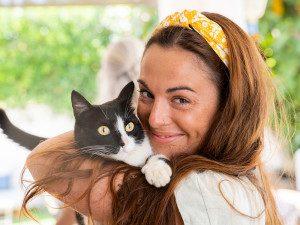Is Your New Cat Stalking You?
Yes, they are right behind you
Ever wonder why your cat follows you everywhere? Have that feeling you’re being watched? Wake to a feline figure towering over you? Do you have a mini-voyeur outside your shower or a judgmental little supervisor staring you down on every work call? Of course you do, if you have a cat.
Maybe you’ve always wanted a cat, you finally adopted one and now you’re realising just how much alone time you don’t have anymore. Yes, your cat is a stalker... and the call is coming from inside the house. But it’s just your cat being your cat.
Why does my cat follow me everywhere?
If your cat is following you around, it’s important to try to understand why they’re doing it. Once you know the reason, you can take steps to address it. If you’re concerned about your cat’s behaviour, it is always best to consult a vet or animal behaviourist. They can help you determine the cause of your cat’s behaviour and recommend ways to address it.
So, why is my cat following me?
Cats aren’t creeps – well, they sort of are, but not in a nefarious way – they’re simply misunderstood. Cats shadow us for a number of logical cat reasons: to get attention, register a complaint about an unacceptably full litter box, because they love us or because they’re hungry.
Your cat may be living the cushy life at home, but inside beats the heart and lingering ancestral memory of a hunter, out in the wild sneaking up to pounce on prey, aka dinner. In real life, your cat recognises you as the main food source, which explains why you’re the lucky recipient of your cat’s stealth attention. And they have no issue sending word that the service at their most frequented restaurant is slower than they’d like.
They’re hungry
Here’s another note on understanding your hungry cat, who probably follows you around nonstop, rubbing against your legs and talking at you with a determined, high-pitched meow.
Cats’ natural dining rhythm is five small meals throughout the day, but instead, cats follow our feeding schedules, which are behaviourally and psychologically unnatural for cats. This is the reason why some cats have even trained their humans to wake up earlier to feed them by biting their toes in bed or sitting on top of them and meowing in their faces. They’re frustrated by not having their innate meal patterns met and not shy about popping up anywhere, anytime to let you know.
They want your attention
If you don’t have a hungry cat, and your cat is still lurking around or checking up on you constantly, your cat is likely trying to get your attention. Hey, aloof cats get lonely, too. Because they’re super-clever and persistent creatures, they’ll resort to multiple creative tricks beyond the classic stalk mode, including:
Pawing at you.
Knocking things off tables, couches or counters.
Stealing or playing with objects (including ones your are presently using).
Jumping up to be at your level.
Inhibited bites (typically a nibble, not a full-on bite).
They might be sick or in pain
If your cat shows an increase in attention-seeking behaviours or any sudden changes in their typical behaviour, you should first take your cat to the vet, because it could be an indicator of an underlying medical condition. Your cat could be following you around more than usual, seeking reassurance and comfort from pain.
The hard part with attention-seeking behaviours is that any interaction we have with our cats – positive (like trying to reassure them with stroking) or negative (such as reprimanding) – will only reinforce the behaviour, as with all attention. Even a glance in your cat’s direction will reinforce and keep the stalking coming. So, what to do?
Will following behaviour change as a cat ages?
Yes - a kitten’s behaviour will definitely differ from a senior cat: as cats age, they may exhibit behaviours such as forgetting where their litter box is, becoming less active, even acting more aggressive. There is actually something called ‘feline cognitive dysfunction’ (FCD), which can develop as your cat gets older. It affects 50 percent of cats between 11–15, and that percentage increases as they get older. Having FCD can impact your cat’s memory, awareness of objects and ability to learn new things, so it can cause sleeping and mood issues.
How do I stop my cat from stalking me?
Provide appropriate outlets for that behaviour
Give your cat enrichment alternatives like puzzle feeders, toys or catnip.
Walk away
You are the source of your cat’s attention. Walk away and reward your cat when they’re calmer. If you can’t walk away because you have a Velcro cat, then provide them with training alternatives like a fun game.
Make sure you have enough scratching posts
Environmental enrichment should be a combination of vertical (cat trees) and horizontal posts (cat hammocks), crinkly blankets and places for your cat to hide.
Check your cat’s litter boxes
Your cat might want you to know that their full litter boxes aren’t passing inspection.
Check your cat’s water
Maybe the water spilled or is empty. Or they’re having problems accessing it (due to another cat or dog guarding it).
Schedule daily playtime
Once a day book some private fun time with your cat with interactive toys and cat wands. Embrace your inner cat parent. Cats are addicted to habit and feel more secure and confident with a consistent routine. To help your cat decrease attention-seeking behaviours, combine the security of a schedule with positive reinforcement training and playtime.
It’s a common myth that cats are independent, standoffish characters – any cat person will call nonsense on that claim. In fact, cats think of us as part of their family group, which is why they rub around our legs, greet us when we come back home, lick us, and stay by our side when we’re having a bad day.
So, yes, your cat is a stalker, but the most charming kind. Relax and enjoy your little creeper (but keep the food coming, just to be safe).
Frequently asked questions
Is it normal for cats to follow their owners everywhere?
It’s fairly common for cats to follow their humans around, because they’re hungry, want your attention or might not feel well. Or they could be imprinting on you.
Is following behaviour exclusive to indoor cats?
Indoor cats will likely follow you more simply by virtue of not roaming around outside. Generally, being outdoors gives a cat more control over their actions.
Can I encourage my cat to follow me more often?
If your cat isn’t following you around, they may simply want some alone time. If you want to entice them, use a gentle tone of voice, carry treats and respect their body cues.
